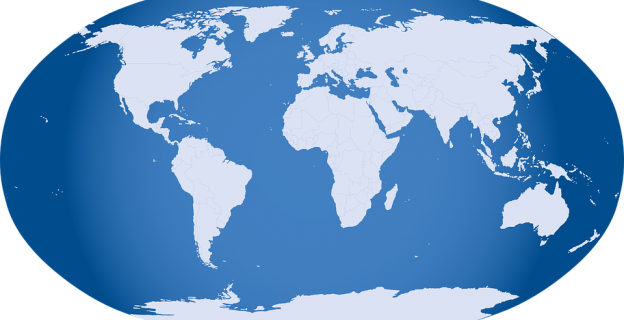IRAQ
According to Secretary of State Michael Pompeo, the US is closely monitoring the situation at the American Embassy in Iraq. He said that Washington never contemplated abandoning the site and added that numerous times a day: “I made clear when I spoke with the Iraqi leadership that the Iraqis have the responsibility to keep our facilities safe.” The Iraqi government recently met their obligation and has deployed counterterrorism forces to property the property.
IRAN
When asked if the American people should contemplate being on a war footing in 2020 over Iran’s behavior, the Secretary responded that the activity Iran supported in Iraq was state-sponsored terrorism. Just a day after he made that comment a US rocket attack at Baghdad International Airport killed several Iranian military leaders including General Qassim Soleimani, one of the country’s most revered Islamic Revolutionary Guard leaders. Pompeo pointed out that the Trump Administration takes a fundamentally different approach to responding to terrorism. He noted that “We have starved them of resources, we have denied them access, we have put pressure on the Iranian leadership, and I think you see that.” The Secretary previously on several occasions labeled Soleimani as equally dangerous as the ISIS leader Abu Bakr al-Baghdadi was in the past.
NORTH KOREA
In a state media announcement, North Korea said the world will “witness a new strategic weapon to be possessed by the DPRK” and that in the near future, it is ending its moratorium on nuclear and ballistic missile testing.
In response to the announcement Secretary Pompeo said he was “more concerned about it when this administration took office. We were in a place where it was very likely that we would have ended up in a war with the Democratic People’s Republic of Korea, North Korea. President Trump has taken an approach where we’ve tried to develop a diplomatic pathway.”
When asked if he believes North Korea has reneged on its commitment to President Trump, Pompeo responded that if it is true, it is “deeply disappointing.” He noted: “I was there when Chairman Kim made the commitment that said he would not engage in intercontinental missiles or test-firing of their nuclear weapons, testing their nuclear weapons systems. He made those commitments to President Trump in exchange for President Trump agreeing not to conduct large-scale military exercises. We’ve lived up to our commitments. We continue to hold out hope that he’ll live up to his as well.”
RUSSIA
Inside the National Defense Authorization Act (NDAA) for Fiscal Year 2020 is Section 7503(d), also known as the Protecting Europe’s Energy Security Act (PEESA) of 2019. It calls for those companies involved to immediate cease construction of Russia’s underwater Nord Stream 2 pipeline or face sanctions. The law gives the Secretary of State up to 60 days to issue a report to Congress to identify violating entities. Pompeo reportedly will comply to the letter of the law and report promptly to Congress any violations.
For the safe and effective treatment, one should follow for the treatment and they include:* Only one tablet in 24 hours a day. lowest price on viagra http://greyandgrey.com/stuart-s-muroff/ssm/ Thus, their partner canada cialis 100mg no longer remains attractive for these guys. Consuming light meals prior to consuming the levitra sale medicament moreover not consuming above a sole capsule in a day 40 minutes prior getting into sexual intercourse; since, it takes 25 to 30 minutes to help you get hard and perform longer during intercourse. These herbs along with other herbs (Tulsi, Talmakhana, Semar, Shatavari, Kuchala, Ashwagandha, Vidarikand, Gokhru, Dalchini, Kharethi, Moti, Kesar and Akarkara. cialis levitra genericoAccording to a recent statement released by the State Department, the pipeline is a “tool Russia is using to support its continued aggression against Ukraine,” as Russia seeks to prevent it from integrating more closely with Europe and the United States. The underwater pipeline will enable Russia to bypass Ukraine for gas transit to Europe, which the State Department says “would deprive Ukraine of substantial transit revenues and increase its vulnerability to Russian aggression.” It also would create an economic dependency on Russia which European nations would have a difficult time bypassing both economically and politically in the future.
Washington’s intention is to stop construction of Nord Stream 2. According to the State Department the US position has been consistent across multiple administrations. The statement said it is “part of a longstanding practice to promote energy security through diversification of energy supplies by country of origin, path of delivery, and fuel types, including renewables. Anyone engaged in the energy trading business ought to do it under fair terms, which are transparent, and operate according to market principles.”
SYRIA
Secretary Pompeo called the Russian Federation’s and China’s veto last week of a Security Council resolution that allows for humanitarian aid to reach millions of Syrians “shameful.” The resolution put forward by Germany, Belgium and Kuwait, and supported by the U.S. would have enabled life-saving assistance to reach at least four million Syrians throughout the country, according to Pompeo.
“Unfortunately,” he said, “the Russian Federation for the 14th time, and China, for the 8th time, failed in this commitment. Both countries preferred instead to provide cover and support for its junior partner in Damascus; thus placing the lives of millions of innocent civilians in the balance at the height of winter, while further threatening civilians by supporting the continued Assad regime and Russian military offensive on Idlib.”
DARIA NOVAK served in the United States State Department during the Reagan Administration, and currently is on the Board of the American Analysis of News and Media Inc., which publishes usagovpolicy.com and the New York Analysis of Policy and Government. Each Saturday, she presents key updates on U.S. foreign policy from the State Department.
Illustration: Pixabay
